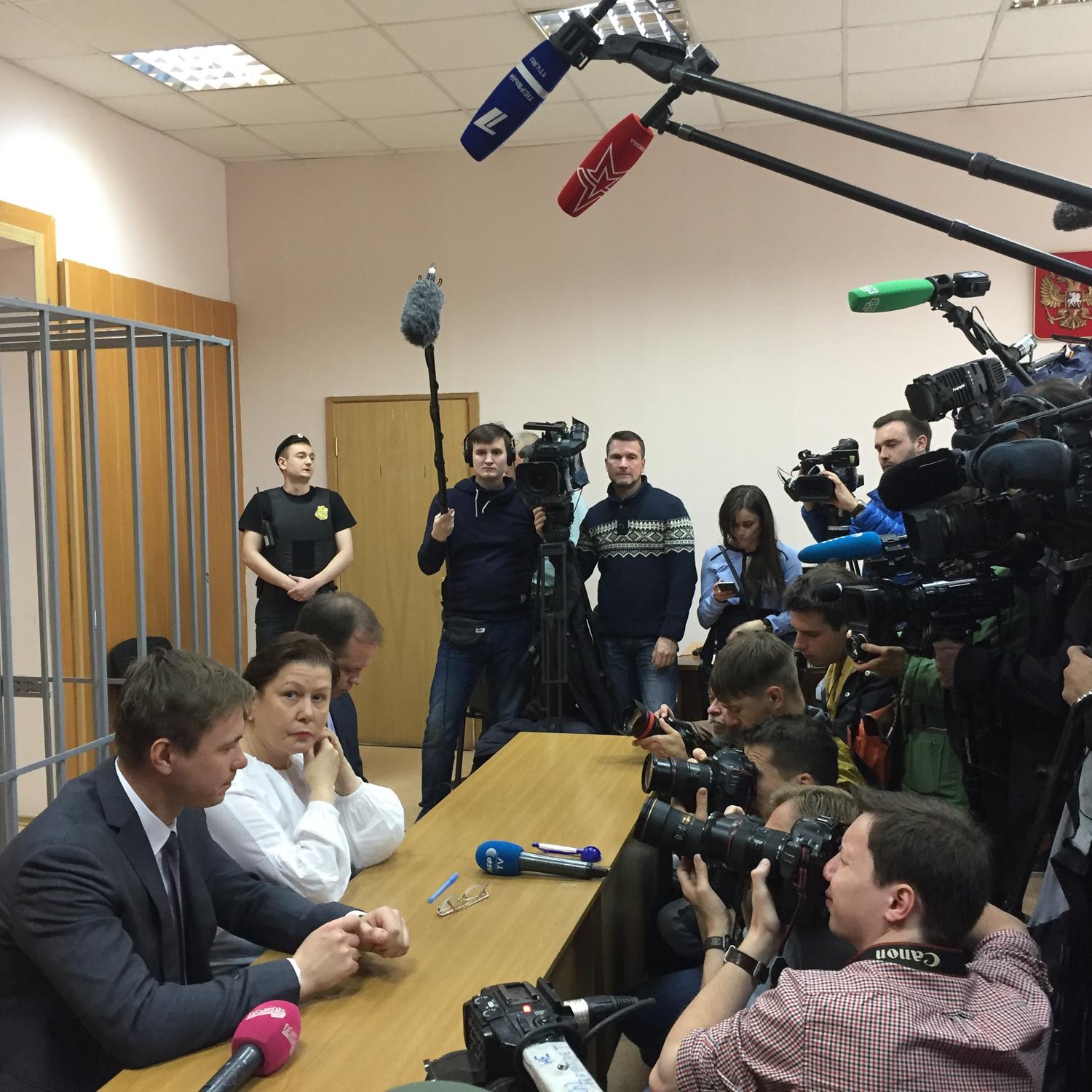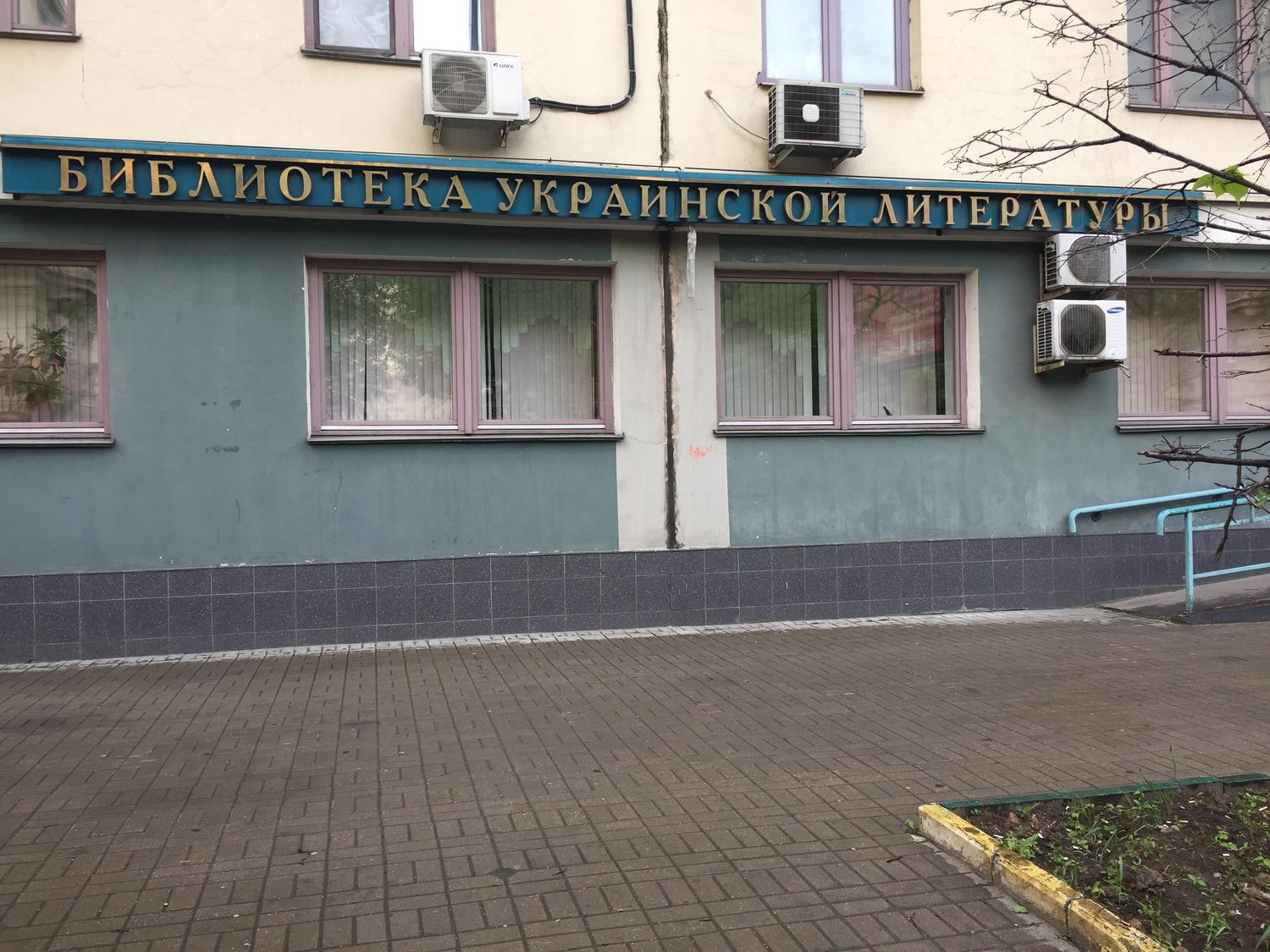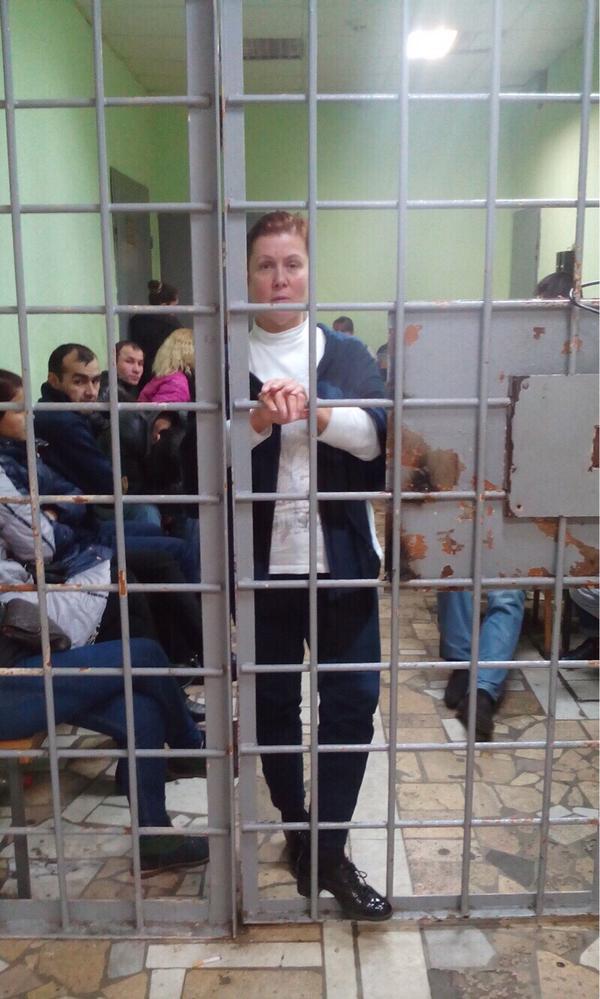
By Marina Bocharova, Coda
As Russia’s war with Ukraine stretches into a third year, the Kremlin is stepping up efforts to squash any expressions of pro-Ukraine opinion. The Russian head of a government-funded Ukrainian library has found herself the latest target.
It took judge Elena Gudoshnikova nearly two hours to deliver her verdict to the librarian in the dock, for crimes ranging from “humiliating human dignity” to embezzling public funds. But in essence, she was convicting Natalya Sharina, head of Moscow’s State Library for Ukrainian literature, for keeping books.
No less than 25 books considered to be “extremist literature” had been found on the shelves, Gudoshnikova declared, listing the offending titles one by one to the packed Moscow courtroom, before handing down a four-year suspended prison sentence.
Sharina is the latest Russian to be caught up in a Kafka-esque legal tangle involving Ukrainian content. A growing number of people labelled as sympathetic to Ukraine in their social media posts, writing or even poetry are landing up in Russian courts, charged with “extremism” or “inciting hatred.”
As Russia’s war in Ukraine stretches into a third year, the Kremlin is broadening its offensive on public opinion at home too. Along with well-established TV and radio messaging and political rhetoric comparing Kiev’s government to fascist Germany, there have been a slew of court cases targeting prominent Ukrainian artists and Russians who challenge the Kremlin position. And pro-Kremlin newspapers have warned then that more prosecutions for “extremism” were likely.
“The government is scared of society,” says Maria Kravchenko of the Sova Center, a Moscow-based rights group, “and it is trying to control it with bans and by installing ideological controls.”
But the guilty verdict came as a total shock to Natalya Sharina and her lawyers. “Those books never belonged to the library,” she told the court, her voice loud but shaking as she tried to hide her trembling hands under a desk.

“I love my profession and consider myself as a specialist,” she continued. “Being a librarian is the most peaceful profession — you sit in a library and read books.”
But in October 2015, agents from Russia’s federal investigative committee burst into her library, demanding to know if any of those books were “anti-Russian.”
After searching the building, they showed her a title called “War in a Crowd” by Ukrainian nationalist Dmytro Korchynsky, which they claimed to have found on the shelves. Sharina and her defense lawyers insist the book was planted, as it did not have any stamps in it or any other library identification.
But she found herself charged under Article 282 of Russia’s criminal code with “inciting national hatred and enmity, and humiliation of human dignity,” which have a maximum five-year sentence. Already suffering from high-blood pressure, she endured a severe spinal injury when a van taking her to court hit a bump. Regular pain injections helped her to get through lengthy court hearings, but at home, her daughter Anna Pavlukova said “she screams from pain” and has difficulty getting out of bed. Pavlukova says although her mother was transferred to house arrest after the injury, the judge took three months to allow her a hospital visit.

The irony is that Natalya Sharina was initially seen as sympathetic to the Kremlin when she was first appointed to head the library ten years ago. Founded in 1989, the expansive library in downtown Moscow became a microcosm of Ukraine in Russia — where Ukrainians, Russia’s third largest ethnic group, could meet and discuss developments back home.
But that attracted the attention of the security services. And according to some media reports at the time, the government gave Sharina, who is Russian, the job of “cleaning up the library of Ukrainian nationalism.” Her appointment prompted outrage in Moscow’s Ukrainian community, with the entire staff at the time quitting in protest.
Colleagues say Sharina did the job she was asked, eventually ridding the library of all political discussions. But that was not enough, and the library started to come under pressure again in 2010. Then came Moscow’s annexation of Crimea in 2014, and a domestic crackdown on anyone criticizing the decision or voicing support for Ukraine in the war that followed. Sharina has got caught up in the hysteria, says Maria Kravchenko of the Sova Center. “The government is scared of anything that it cannot control.”
Sharina’s suspended sentence means she will at least be able to get treatment for her spine in hospital. But Anna Pavlukova says her mother’s life is ruined.
“It’s not freedom at all. She will take off the bracelet, but stay on the list of Russian extremists. Another criminal case with those books can always be raised again.”
Sharina compares her case to Stalin’s infamous “Doctor’s Plot,” a witch hunt of a group of prominent Moscow doctors, most of them Jewish, who were accused of conspiring to assassinate Soviet leaders.
“Decades from now other generations will remember 2017 and cases like mine as a sign of our times,” Sharina said as she left the courtroom.
By Marina Bocharova, Coda





